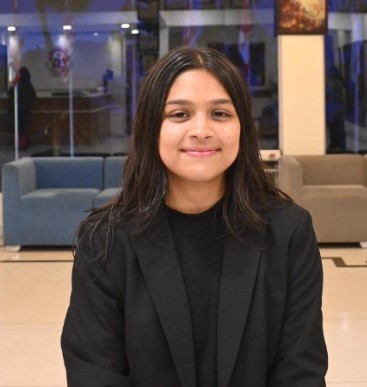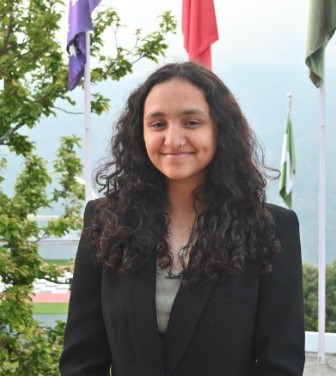United Nations Security Council (SC)
“Deliberating over measures in subject to prevention of the growing terrorism”
The United Nations Security Council, or UNSC, is one of the five (active) principal organs of the United Nations. It has a primary responsibility for the maintenance of international peace and security. It is composed of five permanent member nations and ten rotating member nations which each serve two-year terms. Today, the P5 is composed of China, the United States, Russia, the United Kingdom, and France. Practically speaking, the most important difference between the P5 nations and the ten others is that P5 nations each possess the power to veto any resolution being considered by the body. This means that any action which even one P5 nation disagrees with can be halted by that nation. Despite the power of the P5, the other ten member states are still able to vote on all matters. Resolutions in the UNSC require the “yes” vote of at least nine out of the fifteen members, so even if no P5 nation exercises its veto power, passage is not assured.
financial markets. As the threats and publicity of global terrorism continue to rise, markets appear to be more and more resilient. the real threat of global terrorism from an investor's perspective is about the broader picture, not individual incidents. International investment and cooperation are lower in a world full of terrorism. There are two obvious industries especially vulnerable to the effects of terrorism: insurance and tourism. Not all insurance companies’ payout in the event of international terrorism or foreign wars, so the impact is likely less than you might first expect. Nevertheless, terrorism is a risky business for everyone, and insurance companies hate risk as much as anyone else. On a broader scale, terrorism hurts international trade. This may be due to imminent threats, such as compromised trade routes and distribution systems, or because of the psychological and physical reactions to terrorism.
The final risk to the economy is a political risk. This is already on display in the United States and Europe in 2016, where there has been a rise in scepticism of foreign cultures, businesses, immigrant workers, and refugees. Populist movements already won a victory of sorts in the United Kingdom, where ant globalist and anti-trade sentiments helped pass Brexit. Closing borders to trade and immigrant workers reduces the size and diversity of economic transactions and limits productive resources. It gives a high risk of shaking up the government by asking for political concessions through sent ultimatums.
E-MAIL ID : unsc.mismun2023@gmail.com
financial markets. As the threats and publicity of global terrorism continue to rise, markets appear to be more and more resilient. the real threat of global terrorism from an investor's perspective is about the broader picture, not individual incidents. International investment and cooperation are lower in a world full of terrorism. There are two obvious industries especially vulnerable to the effects of terrorism: insurance and tourism. Not all insurance companies’ payout in the event of international terrorism or foreign wars, so the impact is likely less than you might first expect. Nevertheless, terrorism is a risky business for everyone, and insurance companies hate risk as much as anyone else. On a broader scale, terrorism hurts international trade. This may be due to imminent threats, such as compromised trade routes and distribution systems, or because of the psychological and physical reactions to terrorism.
The final risk to the economy is a political risk. This is already on display in the United States and Europe in 2016, where there has been a rise in scepticism of foreign cultures, businesses, immigrant workers, and refugees. Populist movements already won a victory of sorts in the United Kingdom, where ant globalist and anti-trade sentiments helped pass Brexit. Closing borders to trade and immigrant workers reduces the size and diversity of economic transactions and limits productive resources. It gives a high risk of shaking up the government by asking for political concessions through sent ultimatums.
E-MAIL ID : unsc.mismun2023@gmail.com
CHAIRS

ANVEE TIWARI
Chairperson of UNSC
Anvee is an IBDP year 2 student who excels in various aspects. She is an outstanding scholar, excelling across areas within and outside the classroom. She is an adamant speaker and displays her argumentative abilities with confidence and poise. Her flare for being influential takes her peers into a positive and driven mindset. She is always a highly valued member of any group; her presence often brings comfort in times of having produced high quality work with a fast-approaching deadline. Anvee also believes in a hundred percent participation from all members of her team and opens her mind out to any mistakes made. By taking up the role of the Academic prefect, she displays her leadership skills in all its glory. She also wants to pursuit her further studies in Biology becoming one of the greatest medical experts in future. MUN has given her the opportunity to express her ideas and expectations with regards to governance and legal policies whilst a platform to learn and to explore different ideologies.

SWARA PATEL
Vice-chairperson of UNSC
Swara’s bubbly aura brings an intoxicating freshness to every meeting. She is a thoughtful and kind peer and a true bundle when faced with adversities. A vibrant personality proving herself right as the vice chairperson on UNSC. Not only does she impress whole classrooms and MUN conference rooms, she thoroughly enjoys activities outside the bounds of academia. She is an active inquirer who asks questions that might make you sweat, but can make the committee very interesting. Dancing is also another one of her keen interests in which she excels. She is a graceful Bharatnatyam dancer. Swara is nothing further than a representation of serotonin; she touches souls with her down to earth nature, accepts criticism with her head up high, accepts her flaws and mistakes. It is a blessing to be working with her— a perfect comrade.
